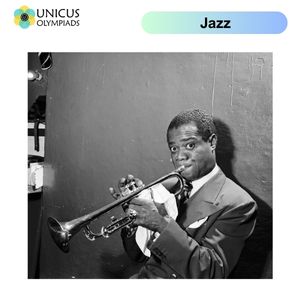

Music is one of the most powerful forces in human culture. It can reflect societal values, influence social movements, and act as a means of self-expression. Throughout history, music has played a central role in shaping cultural identities, and styles like Jazz and Reggae have left an indelible mark on the world. These genres have not only changed the landscape of music but have also influenced broader aspects of culture, from social movements to fashion and political change. This article explores how music styles like Jazz and Reggae have shaped culture and continue to influence generations of artists and audiences.
Jazz is one of the most significant music genres of the 20th century. Emerging from African American communities in New Orleans in the early 1900s, it brought together elements of African rhythms, blues, and European musical traditions. Jazz is known for its improvisation, complex rhythms, and expressive use of harmony, which allowed for great artistic freedom and creativity. The genre became a global symbol of cultural innovation, individual expression, and, importantly, the fight for civil rights in the United States.

The origins of Jazz lie in the African American experience in the United States, where the cultural fusion of African rhythms, European harmonic structures, and blues traditions gave rise to a new form of music. In the early 20th century, jazz was shaped by the experiences of African Americans living in New Orleans, a port city where cultures from Africa, Europe, and the Caribbean collided.
Throughout the 20th century, jazz music became intertwined with the civil rights movement in the United States. Many jazz musicians used their platform to speak out against racial injustice and to express their hopes for equality. The genre's emphasis on improvisation and individuality made it a symbol of artistic freedom and social liberation.
Jazz quickly spread beyond the United States, influencing musical traditions across the globe. Its innovative approach to rhythm, improvisation, and harmony resonated with musicians worldwide, leading to the development of various jazz subgenres and the fusion of jazz with other styles of music.
Reggae music emerged in Jamaica in the late 1960s and is known for its distinctive rhythms, socially conscious lyrics, and association with the Rastafari movement. Reggae became a powerful vehicle for social commentary, addressing issues such as poverty, inequality, and political oppression. The genre has had a significant influence not only on music but also on global culture, politics, and identity.

Reggae evolved from earlier Jamaican music styles such as ska and rocksteady. It combined elements of Caribbean rhythms, American jazz, rhythm and blues, and gospel music. Reggae’s signature “one drop” rhythm and offbeat accentuation created a unique sound that was easily recognizable and deeply rooted in Jamaican culture.
Reggae became an important voice for social and political change, addressing issues such as inequality, poverty, and the struggles of the working class. The genre’s powerful lyrics often conveyed messages of resistance, empowerment, and the fight for justice.
Reggae music quickly spread beyond Jamaica and became a global phenomenon. Its messages of peace, love, and resistance resonated with people worldwide, particularly in marginalized communities. The genre’s influence can be seen in the music of various cultures, as reggae’s rhythms and themes were incorporated into the music of other countries and movements.
Both jazz and reggae have not only shaped the music industry but also played important roles in shaping culture, politics, and society. These music genres have influenced social movements, fostered cultural exchange, and provided a platform for political and social commentary. By transcending national borders, they have become symbols of resistance, freedom, and cultural identity.
Jazz has long been associated with the fight for civil rights and equality, particularly in the United States. The genre's roots in African American culture and its emphasis on improvisation made it a symbol of personal freedom and creativity. Jazz became an important part of the cultural revolution of the 20th century, influencing movements like the Harlem Renaissance and the Civil Rights Movement.
Reggae’s messages of peace, resistance, and empowerment have resonated with oppressed communities worldwide. The genre has become a voice for marginalized people, promoting social justice and unity. Reggae artists have used their music to raise awareness of issues such as inequality, human rights, and political repression, making the genre a symbol of activism and global solidarity.